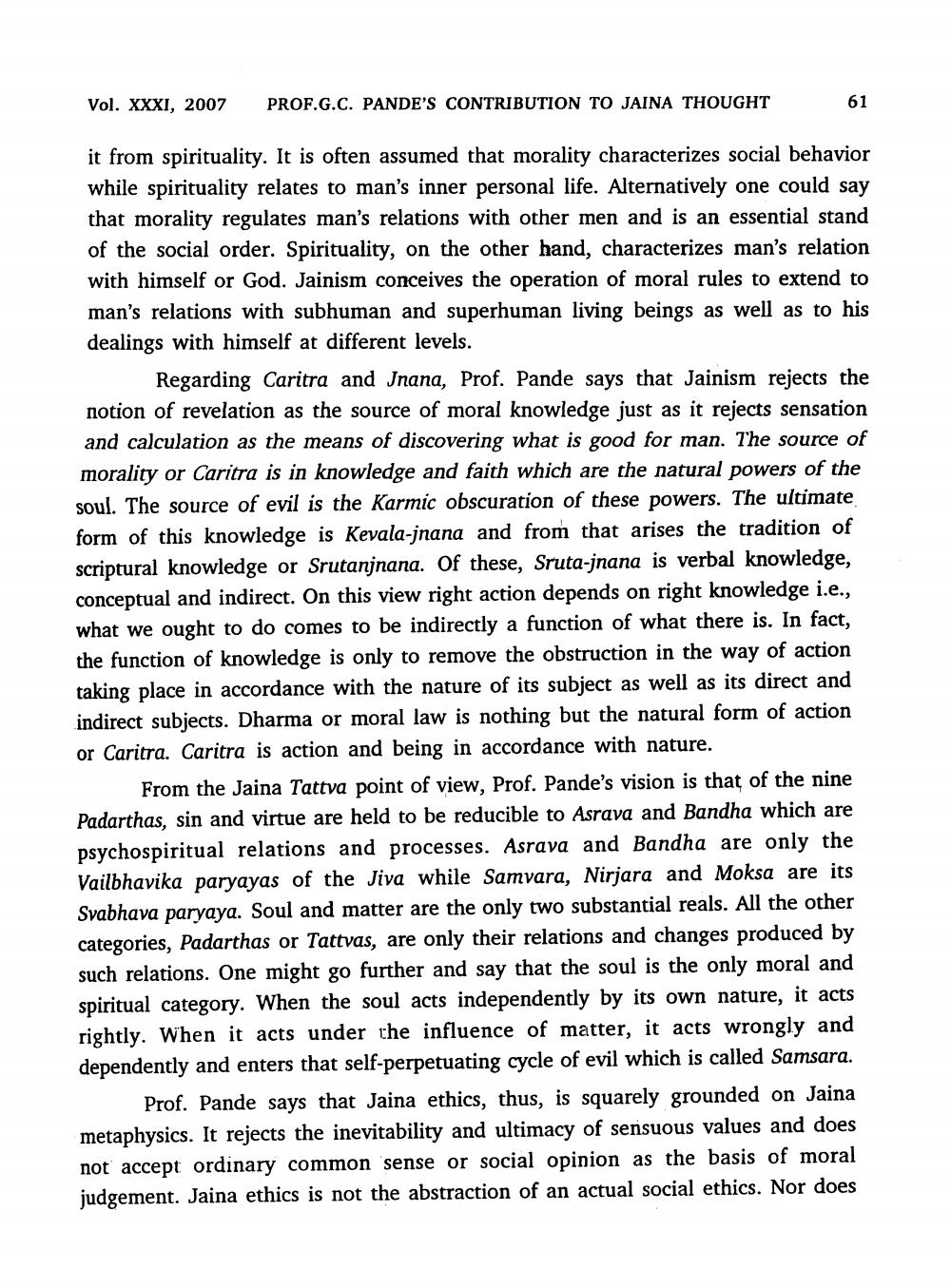________________
Vol. XXXI, 2007
PROF.G.C. PANDE'S CONTRIBUTION TO JAINA THOUGHT
61
it from spirituality. It is often assumed that morality characterizes social behavior while spirituality relates to man's inner personal life. Alternatively one could say that morality regulates man's relations with other men and is an essential stand of the social order. Spirituality, on the other hand, characterizes man's relation with himself or God. Jainism conceives the operation of moral rules to extend to man's relations with subhuman and superhuman living beings as well as to his dealings with himself at different levels.
Regarding Caritra and Jnana, Prof. Pande says that Jainism rejects the notion of revelation as the source of moral knowledge just as it rejects sensation and calculation as the means of discovering what is good for man. The source of morality or Caritra is in knowledge and faith which are the natural powers of the soul. The source of evil is the Karmic obscuration of these powers. The ultimate form of this knowledge is Kevala-jnana and from that arises the tradition of scriptural knowledge or Srutanjnana. Of these, Sruta-jnana is verbal knowledge, conceptual and indirect. On this view right action depends on right knowledge i.e., what we ought to do comes to be indirectly a function of what there is. In fact, the function of knowledge is only to remove the obstruction in the way of action taking place in accordance with the nature of its subject as well as its direct and indirect subjects. Dharma or moral law is nothing but the natural form of action or Caritra. Caritra is action and being in accordance with nature.
From the Jaina Tattva point of view, Prof. Pande's vision is that of the nine Padarthas, sin and virtue are held to be reducible to Asrava and Bandha which are psychospiritual relations and processes. Asrava and Bandha are only the Vailbhavika paryayas of the Jiva while Samvara, Nirjara and Moksa are its Svabhava paryaya. Soul and matter are the only two substantial reals. All the other categories, Padarthas or Tattvas, are only their relations and changes produced by such relations. One might go further and say that the soul is the only moral and spiritual category. When the soul acts independently by its own nature, it acts rightly. When it acts under the influence of matter, it acts wrongly and dependently and enters that self-perpetuating cycle of evil which is called Samsara.
Prof. Pande says that Jaina ethics, thus, is squarely grounded on Jaina metaphysics. It rejects the inevitability and ultimacy of sensuous values and does not accept ordinary common sense or social opinion as the basis of moral judgement. Jaina ethics is not the abstraction of an actual social ethics. Nor does




